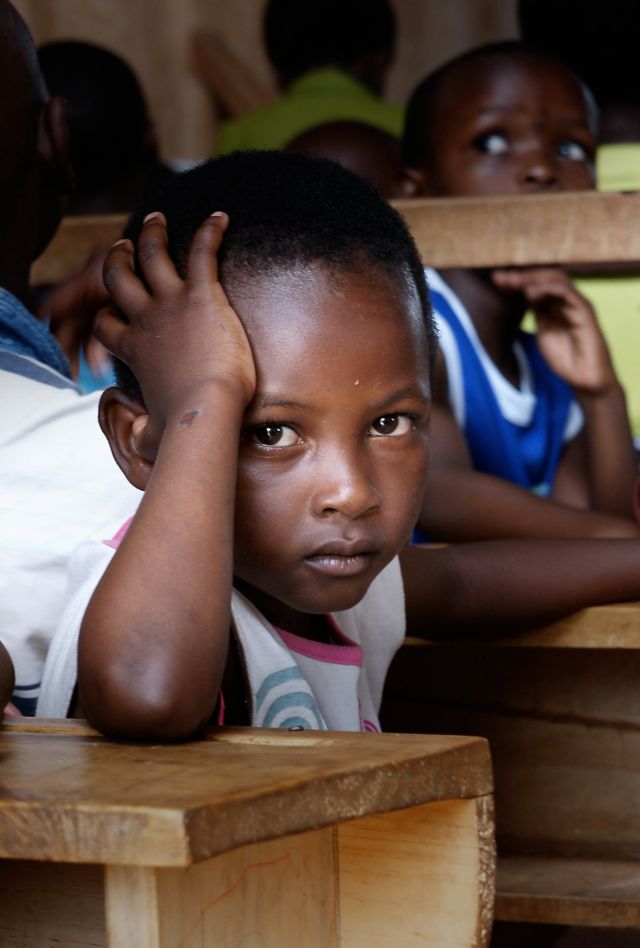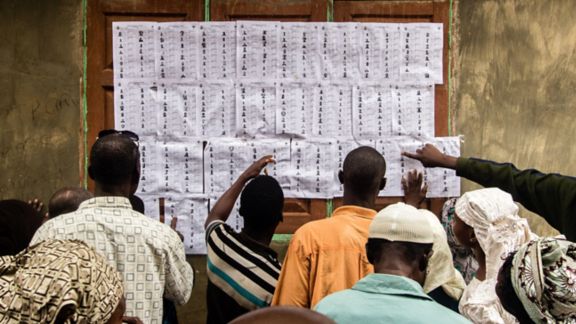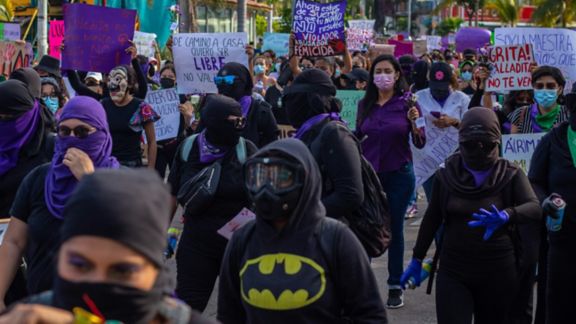LARA Performance and Impact Evaluation in Uganda

Ugandan children’s reading ability is low, and schools are not safe spaces for children, given high levels of school-related sexual violence. The Literacy Achievement and Retention Activity (LARA) was an April 2015-April 2021 initiative funded by the U.S. Agency for International Development (USAID) to improve reading skills for 1.3 million learners in Uganda. It focused on improving the capacity to deliver early-grade reading instruction in local languages and English. It also focused on improving student retention in primary grades by reducing school-related sexual violence and creating safer school environments.
NORC and its subcontractor Panagora conducted an external, independent performance evaluation of LARA to establish its causal impact on reading skills, school-related sexual violence, and school retention. We also assessed the implementation of the program.
Our evaluation used a mixed-methods approach combining a three-arm randomized controlled trial (RCT) design and qualitative methods. We collected a wide range of data using multiple instruments, including:
- EGR instruments:
- Early-grade reading assessments (EGRA)
- A student survey
- A head teacher survey
- A teacher survey
- Focus group discussion with caregivers about EGR
- Early-grade reading assessments (EGRA)
- School-related sexual violence instruments:
- A student survey
- A teacher survey
- A head teacher survey
- A caregiver survey
- Focus group discussions with students, teachers, and caregivers
- A school safety inventory
- A student survey
- A Classroom Observation (CRO) protocol
- Unannounced school visits to assess school retention and attendance
NORC created a gold-standard child protection protocol for researching school-related sexual violence that ensured trained counselors accompanied data collection teams, provided a rapid health assessment for children reporting violence, and shared the assessments with local child protection officers for follow-up (see Resources). Our CRO Study used a full written narrative with the interaction between teachers and learners. Two fieldworkers observed each lesson, completing two separate open-narrative descriptions of the lesson and one closed-ended instrument. The CRO Study was designed to provide an in-depth understanding of how LARA reading instruction principles shaped classroom practice and examine the fidelity and quality of LARA implementation at the classroom level.
A local research team conducted unannounced visits to assess school retention and attendance of a panel of students and check teacher absenteeism. NORC collected retention and attendance data for three school terms in 2017, 2018, and 2019, and one term in 2020 for a group of students who started Primary 1 and Primary 4 in 2017. In 2020, most of these students were enrolled in Primary 4 and Primary 7, respectively, which allowed us to cover all years of primary education.
Reading performance improved among students, although reading levels remain low. School-related sexual violence activities had little impact on improving retention and reducing violence.
At baseline, P1 learners showed low levels of competence in reading skills. Learners reported practicing some reading at home, and caregivers were aware of the importance of education and reading as a fundamental building block.
Corporal punishment was widespread, even though teachers and caregivers had a low opinion of its effectiveness as a disciplinary method. Among the different types of violence experienced, learners most often disclosed being subjected to physical violence in school, followed by emotional and sexual violence. Female learners were disproportionately targets of sexual violence.
Early-Grade Reading (EGR) Findings
Most LARA early-grade reading activities were implemented as planned. In 2018, the CRO Study found teachers tended to follow the LARA lesson plans exactly as written, rarely exercising any agency in contextualizing the lesson plans in their classrooms. Classroom discourse followed traditional patterns of repetitive chorused readings of syllables, words, sentences, or short texts, and class discussion took up a minimal amount of time in the lessons.
While early-grade reading activities had positive effects on reading outcomes, reading performance was still low. Over a quarter of P3 learners could not read a single word from a short grade-2-level paragraph. Positive effects were stronger in local languages (Runyankore-Rukiga and Luganda) but very modest in English.
School-Related Sexual Violence Findings
LARA’s Social Behavior Change Communication (SBCC) campaigns, teacher training, and Uganda Kids Unite (UKU) clubs in schools were less effective than originally hoped in changing attitudes and behavior around school-related sexual violence. Problems included focusing primarily on social and emotional learning with school-related sexual violence interspersed throughout rather than school-related sexual violence being front and center, and having teacher guides mostly in English, which led to some inconsistencies in comprehension.
The evaluation found no statistically significant differences in gender attitudes, school climate, or prevalence and reporting of violence between LARA and control schools. However, LARA achieved some reduction in teachers’ use of insults towards learners, refusing to speak to learners, and locking up learners as a form of discipline. Learners also report suffering fewer types of physical violence and a lower prevalence of caning.
The evaluation also found a misunderstanding about the concept of corporal punishment, suggesting that teachers do not consider caning to be corporal punishment.
Retention and Attendance Findings
Retention and attendance data showed slightly more retention of learners in schools that received school-related sexual violence activities, but only in Runyankore-Rukiga-speaking areas. LARA had no effect on reducing the high level of absenteeism among learners and teachers.
Resources
More information can be found in NORC’s summary of the evaluation in a Findings, Conclusions and Recommendations Matrix. NORC also prepared four policy briefs. These can be found in the Resources section of this page.
Related Tags
Project Leads
-
Ritu Nayyar-Stone
Principal Research ScientistProject Director -
Alicia Menendez
Senior FellowPrincipal Investigator -
Ingrid Rojas
Senior Research ScientistProject Manager









